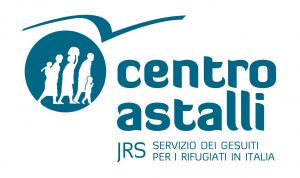
-
 History of Religions
History of the 3 Monotheistic religions (Judaism, Christianity and Islam) and of the main different Christianity confessions (Roman Catholicism, Eastern Catholicism and Eastern Orthodoxy, Anglicanism and Protestantism)
History of Religions
History of the 3 Monotheistic religions (Judaism, Christianity and Islam) and of the main different Christianity confessions (Roman Catholicism, Eastern Catholicism and Eastern Orthodoxy, Anglicanism and Protestantism)
-
 Pedagogical Approaches
New pedagogical approaches to teach history of religion
Pedagogical Approaches
New pedagogical approaches to teach history of religion
-
 Role of Religions in Civilization
How to didactically promote among students of different confessions, the capacity of a critical analysis and understanding of the role played by religions in the history of mankind
Role of Religions in Civilization
How to didactically promote among students of different confessions, the capacity of a critical analysis and understanding of the role played by religions in the history of mankind
-
 Interreligious Students’ Competences
Set of teaching contents, to be used by teachers to highlight and valorize the universal values of tolerance and universalisms that all Monotheistic religions and religious texts contain to promote and sustain mutual understanding among students
Interreligious Students’ Competences
Set of teaching contents, to be used by teachers to highlight and valorize the universal values of tolerance and universalisms that all Monotheistic religions and religious texts contain to promote and sustain mutual understanding among students
-
 Managing Multi-Religious Classes
Teaching Sources to help teachers dealing with multicultural and multi-religious classes
Managing Multi-Religious Classes
Teaching Sources to help teachers dealing with multicultural and multi-religious classes
-
 Introduction
A comparative review of the liturgical celebrations, ceremonies and dietary rules existing in the different religions.
Introduction
A comparative review of the liturgical celebrations, ceremonies and dietary rules existing in the different religions.
-
 Celebrations
Description and comparative analysis of the celebrations of different religions and confessions
Celebrations
Description and comparative analysis of the celebrations of different religions and confessions
-
 Ceremonies
Description and comparative analysis of the ceremonies of different religions and confessions
Ceremonies
Description and comparative analysis of the ceremonies of different religions and confessions
-
 Dietary Rules
Description and comparative analysis of the dietary rules of different religions and confessions
Dietary Rules
Description and comparative analysis of the dietary rules of different religions and confessions
Events
The Pathway through Religions project has been promoted trough conferences and articles.
Partnership
-
 Contractual Partners
From this section it is possible to access to a description of each contractual partner of the Pathway through Religions project.
Contractual Partners
From this section it is possible to access to a description of each contractual partner of the Pathway through Religions project.
-
 Schools
From this section it is possible to access to the information about the schools involved in the Pathway through Religions Project in the European countries involved.
Schools
From this section it is possible to access to the information about the schools involved in the Pathway through Religions Project in the European countries involved.
-
 Associated Partners
As a result of the exploitation activity a number of associated partners officially joined the project in order to contribute to the improvement of the project impact on their target groups and to ensure the project sustainability by continuing using the project deliverables in the next years.
Associated Partners
As a result of the exploitation activity a number of associated partners officially joined the project in order to contribute to the improvement of the project impact on their target groups and to ensure the project sustainability by continuing using the project deliverables in the next years.
This section of the Pathway through Religions portal provides administrative information for the project contractual partners and for the European Commission and it is password protected.
Map
Homepage > ReligiousSite Map > Map

An interactive didactical map interactive didactical map giving access to sites with a religious relevance.
Back to the Religious Sites List

Centro Astalli - JRS Jesuit Refugee Service in Italy
Via degli Astalli 14/a - 00186 Roma - ITALY
DESCRIPTION OF THE RELIGIOUS SITE
"Writing does not go into exile" for secondary school pupils
and "We write in color", for those in secondary schools of first grade.
The students will have to try their hand in drafting a story that addresses a theme chosen from those proposed by the projects: the right to asylum, immigration, interreligious dialogue, intercultural society.
Dojo Zen Sanrin - Don Minzoni road, 12 – Fossano (Cuneo) - ITALY
Gurdwara Singh Sabha - Via Pascheretto 54 Marene (Cuneo) ITALY
Moschea di Roma - Viale della Moschea 85, Roma
- Building Students’ Interreligious Competences in Communication and Adaptation in a Cross-Cultural Environment - Interfaith Map of the Local Community
VIDEOS
-
Annual Report 2018
Video of the presentation of the 2018 Annual Report of the Astalli Center, with Monica Maggioni, Marco Damilano, p. Fabio Baggio, Felipe Camargo (UNHCR).
-
I am with you. History of Brigitte
Video in which the author Melania Mazzucco and Brigitte tell how the book "I am with you", published by Einaudi, was born, the story of an encounter and recognition, of an ordeal and a rebirth. The story of Brigitte, forced to flee precipitously from the Congo, downloaded to Rome as a cumbersome parcel
-
Interreligious dialogue at school
Video realized by Digital Artisans as part of the project "Common places, places in common, paths of dialogue and knowledge starting from places of worship in the province of Rome"
-
Meetings. Tabbed path on interreligious dialogue
Educational cards for the presentation of the six main religions of the world. Interreligious dialogue
LINKS
-
Jesuit Refugee Service
http://en.jrs.net/
